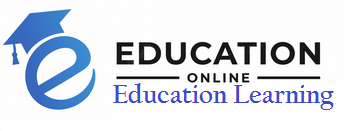Who says expatriation says… immersion and maybe… bilingualism. For adults, the immersion will not necessarily be total and, sorry to admit it, bilingualism either! On the other hand, children have a huge chance, their brain has capacities that an adult’s no longer has. School and extra-curricular activities provide them with daily immersion, so they have enough to acquire the ability to switch effortlessly from one language to another depending on the context, in other words they will be able to become bilingual.
However, there are several ways to access bilingualism when you are an expatriate child. Parents will quickly face difficult choices and first of all that of the education system . We guide you in this article to find the beginnings of an answer to this question “Which school should I choose for my child?” »
One or more possible educational systems
In some countries the local education system is too far from ours and the choice of schools is limited, most expatriates then find themselves in the same neighborhoods and in the same school, often the Lycée Français (which despite its name covers all levels ). At least in this case, no need to rack your brains!
On the other hand, in countries where a strong international community is established, and where public schools are of a level comparable to that of France, it will be necessary to choose between the local education system and a bilingual or international system.
This choice can guide your search for accommodation to be close to a bilingual school or take into account the school map, so it is one of the first decisions to make before your departure. Depending on your destination and the French community residing there, you will be able to access:
a public school where 100% of the country’s language is spoken, sometimes with language support programs (such as the ESL program -English as a second language- in the United States for example)
a bilingual school, public or private , which will teach part of the program in French. There is in particular the French education network abroad (AEFE) , which brings together nearly 500 establishments in 137 countries, including French high schools abroad.
If you are going to live in the United States, you will have the choice between private schools and also many public schools offering Dual Language Programs. But entering these schools is not always easy… so we explain everything to you in the article How to integrate a bilingual school in New York and the USA .
By choosing a bilingual school, the advantage is that it will take care of the teaching of French. If it is accredited by the Ministry of National Education then you will basically only have to supervise your children in the same way as you would have done in France. If the school is not approved, then you will probably have to support your children more or ensure that they acquire French.
an international school where teaching is 100% in English to bring together students of all nationalities (and where French will therefore only be a possible option). If the child is at the elementary level, he will certainly be able to integrate this type of school even if he is not bilingual.
Among the French high schools around the world, the example of that of Seoul
Apart from these 3 main categories of establishments, some cities create programs according to the demand of the families who live there. Thus a local school may need to develop a reinforced French program when there is a strong community from various French-speaking countries. This is the case, for example, of certain “Charter schools” in the United States.
Finally, “home schooling” is an alternative to consider when there is no suitable solution in the host country. It can be a transitional period, time to learn the language and join a local school.
Whether it is to do school entirely at home or to support your child in learning French when the level at school is too low or the lessons non-existent , several formulas exist. Most are devoted to expatriate children and therefore take into account their particular profile. They allow you to choose lessons only for French mother tongue or for a set of subjects. We have collected them in our file on distance education .
Each family will move towards one option or another according to its own criteria, however we would like to share with you 2 of our convictions which do not necessarily come to the mind of future expatriates.
French is lost as quickly as the second language is learned!
Remember that becoming bilingual means on the one hand learning to speak a foreign language fluently and on the other hand keeping one’s mother tongue at an excllent level. And as strange as it may seem, in expatriation French often requires more effort than the foreign language.
Indeed, expatriate children are exposed every day to the language of the country where they live, whereas if the school is not bilingual, French is only spoken at home. It is possibly even more difficult for the children of mixed couples if the so-called minority language is not frequently spoken within the household (those, on the other hand, have had the chance to hear 2 languages since their birth and they will naturally become bilingual if their parents make sure they learn these two languages).
If there is therefore one thing to remember, it is that even on arriving in a school where the language spoken is totally unknown to them, the children will integrate so quickly into their new environment that they will forget their acquired in French.

